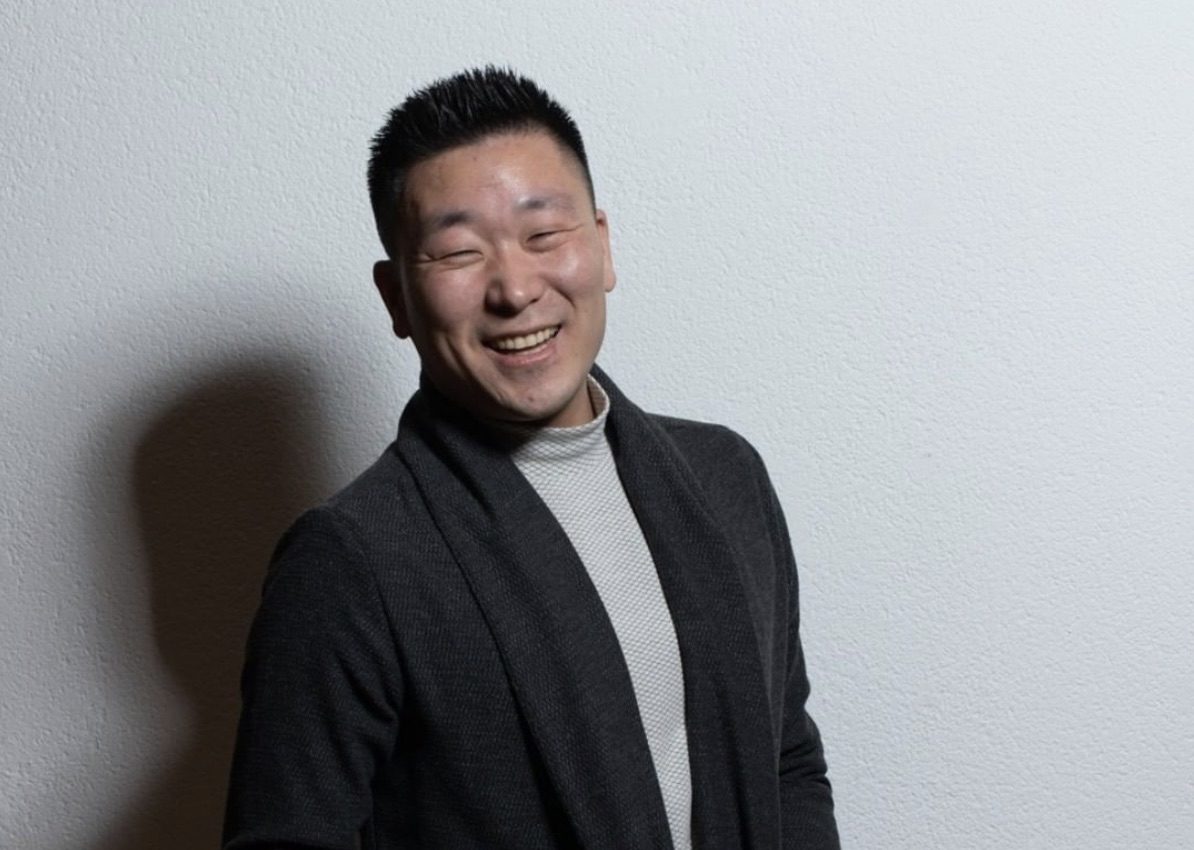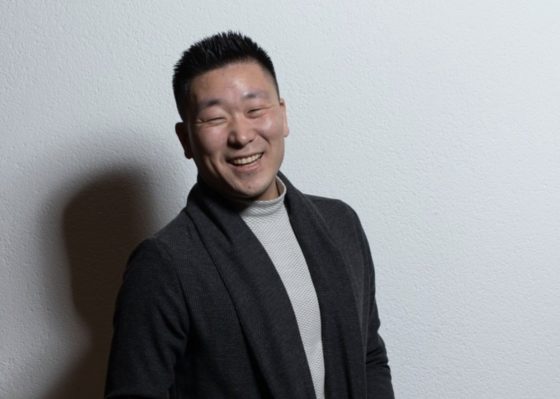Challenging stereotypes is key in the campaign to #StopAsianHate


Discrimination against East Asians has increased dramatically since the outbreak of Covid-19, spurring the community to action. Louise Rasmussen talked to Kevin Groen, one of the main speakers at the most recent #StopAsianHate event in Amsterdam.
By trade, he helps companies create more inclusive work environments and he is also on the board of Omroep PAC, a pan Asian collective that aims to increase and change the representation of Asian people in the Dutch media. But it is his experiences as a child, says Kevin Groen, that have been his main motivation.
Growing up in the Netherlands as an adopted South-Korean boy, Kevin experienced name calling and exclusion early on. ‘I knew that for the general public, I was not right,’ Kevin, now 37, says. ‘The way I looked was not popular or accepted. My ethnicity was just not the norm.’
Being an outsider deeply affected his self-esteem as a child, partly, as he says now, he lacked the words and social awareness at the time to identify his experience as racism. ‘For most of my life, I wanted to get plastic surgery in order to physically look whiter, have bigger eyes, a bigger nose,’ he says.
Nowadays, Kevin experiences other forms of racism. He recalls a recent episode where he was the lead trainer and main contact person at a three-day seminar. ‘When I went to the reception on the first day to get the key, they didn’t give it to me. But when my white co-trainer went to get the key, she got it immediately without any questions asked,’ he says.
Parental conversations
When he was younger Kevin had many conversations with his parents about plastic surgery. Yet, ‘the word racism did not come up once,’ he says. He stresses that his parents have always been very supportive and that they acknowledged him feeling uncomfortable in his skin. ‘But my parents and I never questioned why? Where does it come from?’.
Today things are changing. During his speech at the #StopAsianHate demonstration in early April, he told his fellow campaigners that his adoptive mother had phoned him to say that she wanted to learn about his childhood struggles. ‘I’ve waited 35 years for that phone call,’ he said on stage.
His mother’s phone call, he says, illustrates a larger dynamic in the conversation about discrimination. ‘The one who is privileged says: there are things I don’t understand and that I don’t know, but I want to learn about them.’
Conversations about racism and adoption were not only difficult because they risked initiating conflict, but also because his parents might misunderstand them as a personal attack. ‘It was never about that,’ he says. ‘It was about just the dynamics of growing up.’
Dutch halt adoptions from abroad after critical report
He does not accuse or blame his parents for his experience growing up.
‘The adoption agency, the government, my parents, adoption communities – they all play a role and have a responsibility in making sure that if you’re a white parent and you adopt non-white kids, you’ll have to become more knowledgeable about race, because it will become an issue – not for you as a white parent, but for the children,’ he says.
Media representation
Reflecting on his experience of racism as a child, Kevin says he now understands why he faced discrimination. ‘In public – the media, in politics and many other areas – there is very little Asian representation if any,’ he says. ‘And the Asian representation there is on screen is stereotypes.’
He gives the example of Pete Wu, a Dutch Chinese journalist and writer living in the Netherlands, who was invited to a talk show to speak about Covid-19.
‘Why would you ask him to talk about the coronavirus? He’s not an epidemiologist,’ Kevin says. ‘You got to invite him to talk about his expertise, about media related matters or anti-racism, or his book. But he doesn’t get invited to speak about those things. I think that’s a problem.’
50,000 sign petition as Dutch Chinese speak out
Wu has expressed the same himself in a column in the Volkskrant newspaper. ‘We are not in control of our own stories – Chinese Dutch are still not visible,’ he wrote in his piece Yes, I am of Chinese descent, but I don’t know about the corona virus.
Stereotypes
‘Stereotyping is not racism – but stereotyping is part of racism,’ Kevin says. ‘If 95% of the representation in magazines, TV, movies, and so on, is stereotyping and only 5% is as a fully respectable, decent human being with complex backstories, dreams and ambitions, then unconsciously you start developing this idea that these people are all just one-dimensional beings.’
So how should representation of Dutch Asians change? ‘The main thing that is missing,’ Kevin says, ‘is just seeing Asian people as normal, participating members of society, as experts in a particular field or as complex characters, like any person. Every person has a history, has dreams, ambitions, feelings and desires. Asians have never been portrayed like that. They’ve always been pigeonholed in a certain way.’
In addition, Kevin says, there is just a need for a more systematic representation of Asians in public – whether on the news, in talk shows or magazines. An accurate portrayal is unlikely to make any difference if it only happens once or twice a year, he points out.
Pan Asian Collective
One of Kevin’s reasons for joining Omroep PAC was precisely the possibility of addressing racism from inside the media.
‘Better representation doesn’t only happen on screen; it also happens off screen,’ he says. ‘That includes the production team, the management team, the people who decide what kind of programmes are made, what is being aired and what isn’t. A lack of representation and diversity behind the screen also means that a lot of decisions will not be inclusive.’
Omroep PAC was launched with the aim of becoming a public broadcaster, but failed to meet the minimum requirement of 50,000 paying members, unlike its BLM counterpart Zwart. Instead, the collective has started working on creating content for its own channels and is exploring possibilities to collaborate with Dutch broadcasters in shaping content.
#StopAsianHate
When Kevin helped organise the second #StopAsianHate demonstration in Amsterdam together with other campaigners, including Hui-Hui Pan, the founder of Omroep PAC, it was an experience of mixed feelings.
‘It’s empowering to tell your story, to have it understood by so many people and to see many Asian people be there and speak up,’ he says. But it was also a frustrating reminder that there is much more work to be done for equality and inclusion.’
And while the big Dutch cities were organising events for the International Day for the Elimination of Racial Discrimination on March 21, ‘Asian representation in announcements and on stage was either non-existent or limited,’ Kevin says.
The experience was particularly difficult as 2020 and 2021 marks a period in which hate, violence and racism against East Asians has skyrocketed across the world, including the Netherlands.
‘If the communities that fight racism ignore you, then what can you expect from those that aren’t even actively and consciously fighting racism?’ Kevin asks.
The road ahead
Generally speaking, understanding and awareness of discrimination is starting to change, ‘although’, Kevin says, ‘it is only changing very slowly’. Since the Black Lives Matter movement gained widespread attention last year, he has experienced a dramatic increase in requests from companies for his expertise in diversity, equity and inclusion.
Kevin sees a clear difference between companies that only want to tick a box, and those that consider inclusivity to be a social responsibility and a moral obligation. And the amount of work required to become inclusive often comes as a surprise.
‘People underestimate how big it is, they overestimate their own inclusiveness. I think it’s very human to do that. It just feels better to say, I’m already inclusive, I’m very aware.’
‘Nobody becomes “woke” with just one workshop,’ he says. ‘It’s a lifelong journey of having to confront and deconstruct your own privileges and biases, and diversifying your perspectives, narratives, ideas and beliefs and then making your behaviour and language more inclusive.’
Thank you for donating to DutchNews.nl.
We could not provide the Dutch News service, and keep it free of charge, without the generous support of our readers. Your donations allow us to report on issues you tell us matter, and provide you with a summary of the most important Dutch news each day.
Make a donation